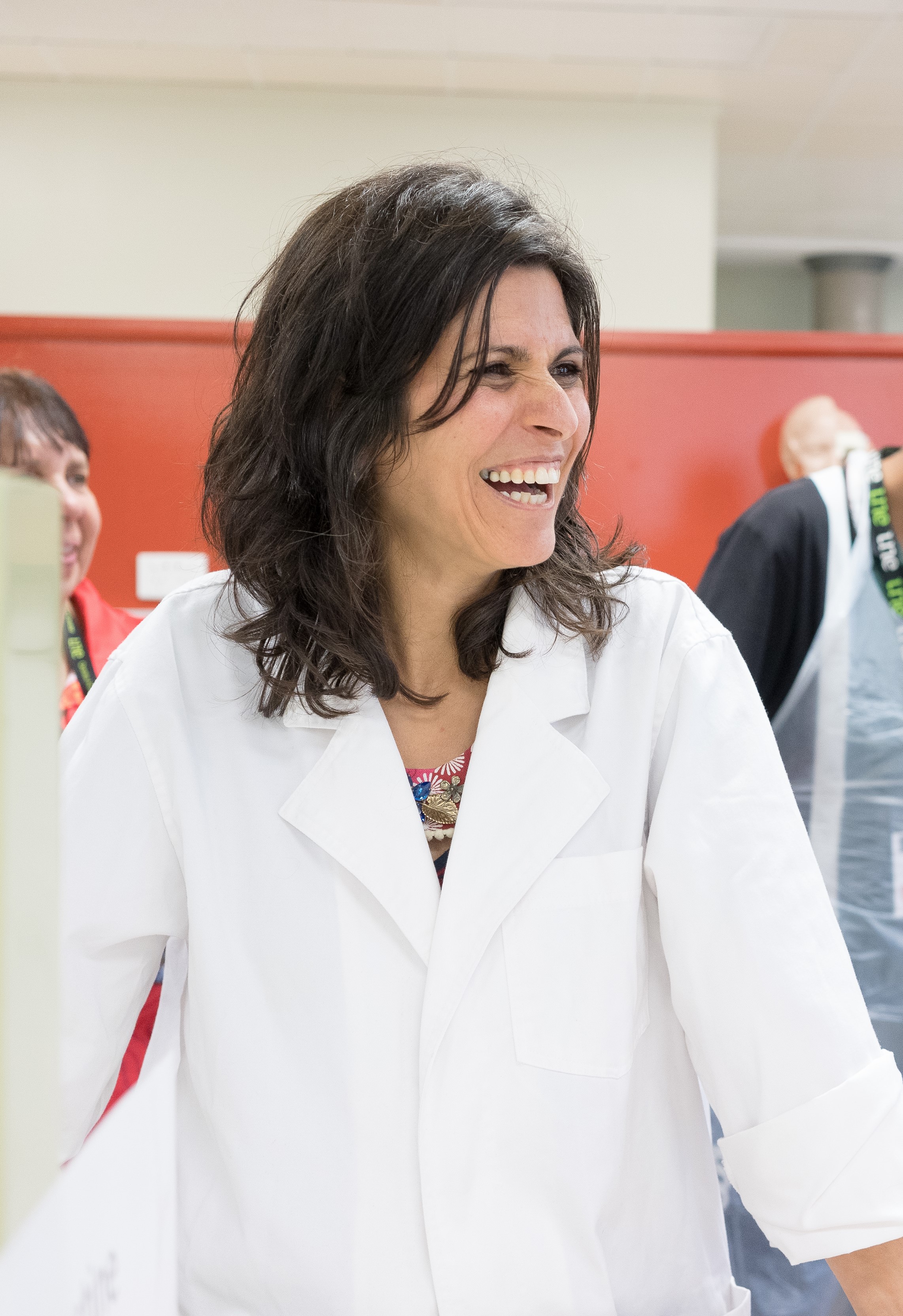Dr Gal Winter
Senior Lecturer Biomedical Sciences - School of Science and Technology

Biography
Dr Gal Winter is a microbiologist studying microbial ecology in human and plant environments. For the past four years Gal has been working as a lecturer and Course Coordinator for the Bachelor of Biomedical Sciences at the University of New England. Gal has won several awards for excellence in teaching and research and has published her research outcomes in renowned professional journals. In 2008, Gal moved from Israel to Australia to chase her professional dream of working on microbial food biotechnology and her personal dream of living the Australian lifestyle. She received an international PhD scholarship from the University of Western Sydney and worked in collaboration with the Australian Wine Research Institute on wine fermentation, graduating her PhD in 2013. She then commenced a postdoctoral fellow at the University of Queensland, working on microbial biotechnology for the production of value-added chemicals.
Qualifications
- PhD (molecular biology) University of Western Sydney, the Australian Wine Research Institute
- MSc, Biochemistry and Food Science, the Hebrew University of Jerusalem
- BSc, Biochemistry and Food Science, the Hebrew University of Jerusalem
Awards
- 2019: Teachers Travel Award, the Australian Association for Microbiology
- 2018: School and Faculty Excellent in Teaching Award for Curriculum Development, University of New England
- 2018: Dean’s Award for Early Career Research Excellence, University of New England
- 2017: School of Science and Technology Excellent in Teaching development award for curriculum development, University of New England
- 2017: Theo Murphy High Flyers Think Tank – Rethinking food and nutrition science, Australian academy of Science
Teaching Areas
Course Coordinator: Bachelor of Biomedical Sciences
MICR350 Clinical Microbiology and Virology
HUMN240 Issues in Human Nutrition
PSIO335 Human Nutrition and Metabolism
BCHM341/541 Clinical biochemistry and Cell Biology
MICR220 Introductory Microbiology
Primary Research Area/s
Gut Microbiology; Microbial Ecology; Antibiotic resistance; Gut-Brain Axis; Gut microbiology and Nutrition
Research Interests
I am fascinated by the “microbiome revolution”, that is the mounting evidence that suggest that the collective microorganisms inhabiting the human body (i.e. the microbiome) have a significant influence on physical and mental health. I am particularly interested in understanding the role of the gut microbiome in the diagnosis and treatment of depression. This research has the potential to impact on the health and wellbeing of Australians, with as many as 1 in 6 people being diagnosed with depression throughout their lifetimes.I further apply the principles of microbial diversity to other environmental systems through academic and industry collaborations. A recent collaboration includes a study of the plant root microbiome in hydroponics systems. this project is part of the Future foods systems CRC.
Recent Grants
- 2020: Future Food Systems CRC, Microbial rhizosphere diversity in glasshouse hydroponic crops, $120,000
- 2019: Faculty of Science, Agriculture, Business and Law at UNE, Dean’s Award - Early Career Research Excellence, $2500
- 2018: CASS Travel Award EFT “Mind Mood and Microbes”, $4000
Research Supervision Experience
Publications
Charlesworth, R.P.G and Winter, G. 2020. Small intestinal bacterial overgrowth and Celiac disease–coincidence or causation? Expert Review of Gastroenterology & Hepatology 14 (5), 305-306
Leech, C., Tighea, M.K., Pereg, L., Winter, G., McMillan, M., Esmaeilia, A., Wilson, S. 2020. Bioaccessibility constrains the co-composting of field aged PAH contaminated soils. Journal of International Biodeterioration and Biodegradation 149.
McGovern, A., Hamlin, A., Winter, G.*. 2019. The Antimicrobial side of Antidepressants. A cause for Anxiety? Australian and New Zealand Journal of Psychiatry.
Ezzy, A. C., Hagstrom, A. D, George, C., Hamlin, A. S., Pereg, L., Murphy A. J and Winter, G*. 2019. Storage and handling of human faecal samples affect the gut microbiome composition. Journal of Microbiological Methods.
Winter, G.*, Pereg, L. 2019. A review on the relation between soil and mycotoxins: Effect of aflatoxin on field, food and finance. Eur J Soil Sci . 70: 882– 897. https://doi.org/10.1111/ejss.12813
Winter, G.*, Hart, R. A., Charlesworth, R. P. G. & Sharpley, C. F. Gut microbiome and depression: what we know and what we need to know. Reviews in the Neurosciences, doi:10.1515/revneuro-2017-0072 (2018).
Lai, B., Plan, MR., Averesch, NJH., Yu, S., Kracke, F., Lekieffre, N., Bydder, S., Hodson, MP, Winter, G., Krömer, JO. 2017. Quantitative analysis of aromatics for synthetic biology using liquid chromatography. Biotechnology Journal 12 (1).
Averesch, NJH, Winter, G, Krömer, J. 2016. Production of para-aminobenzoic acid from different carbon-sources in engineered Saccharomyces cerevisiae. Microbial cell factories 15 (1), 1
Yu, S, Plan, M., Winter, G., Krömer, J. 2016. Metabolic engineering of Pseudomonas putida KT2440 for the production of para-hydroxy benzoic acid. Frontiers in Bioengineering and Biotechnology (4)
Williams, TC., Averesch, NJH., Winter, G., Vickers, CE., Nielsen, LK., Krömer JO. 2014. Quorum-sensing linked RNA interference for dynamic metabolic pathway control in Saccharomyces cerevisiae. Metabolic Engineering 29 (124-134)
Winter, G.*, Cordente , AG., Curtin, C. 2014. Formation of hydrogen sulfide from cysteine in Saccharomyces cerevisiae: Genome wide screen reveals a central role of the vacuole. PLoS One 9 (12) e113869
Winter, G.*, Averesch, NJH., Nunez-Bernal, D., Krömer, JO. 2014. In vivo instability of chorismate causes substrate loss during fermentative production of aromatics. Yeast 31(9):333-341
Winter, G., Krömer, JO. 2013. Fluxomics - connecting 'omics analysis and phenotypes. Environmental Microbiology 15(7):1901-16
Winter, G., Curtin, C. 2012. In-situ high throughput method for sulfide detection. Journal of Microbiological Methods 91(1):165-70
* - Corresponding author
Clinical Skills and Experience
Memberships
- Australian Society for Microbiology (ASM)
- Australian Association for Clinical Biochemists (AACB)

